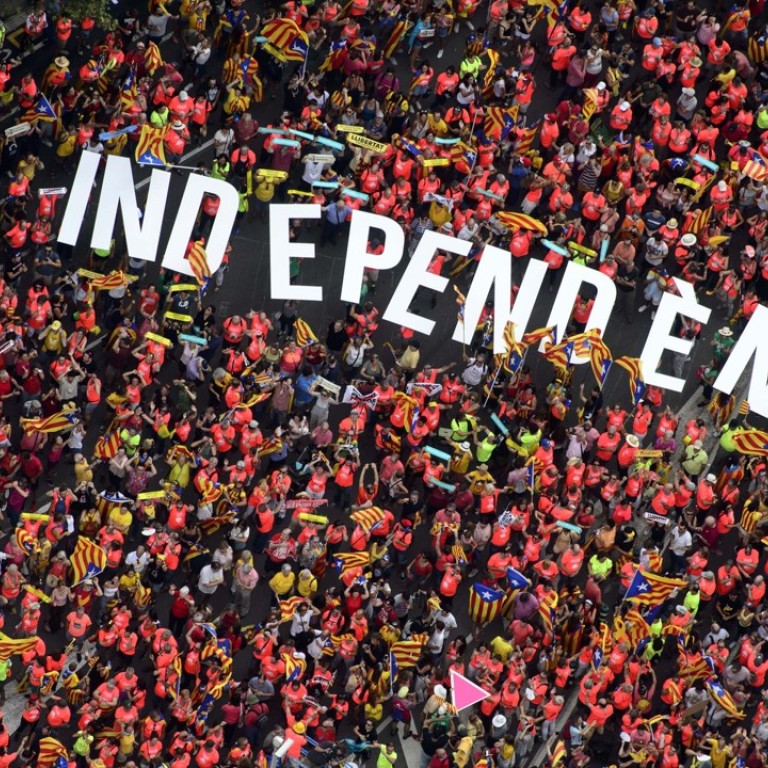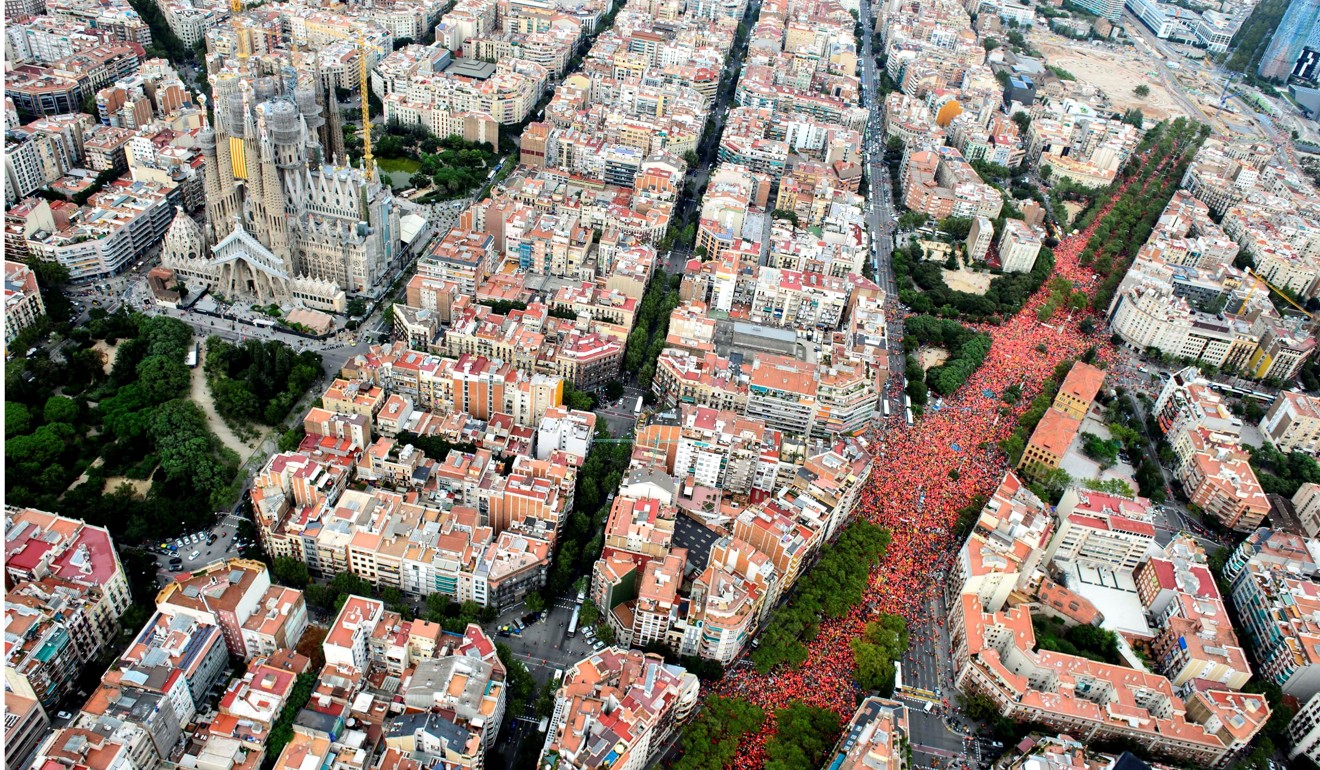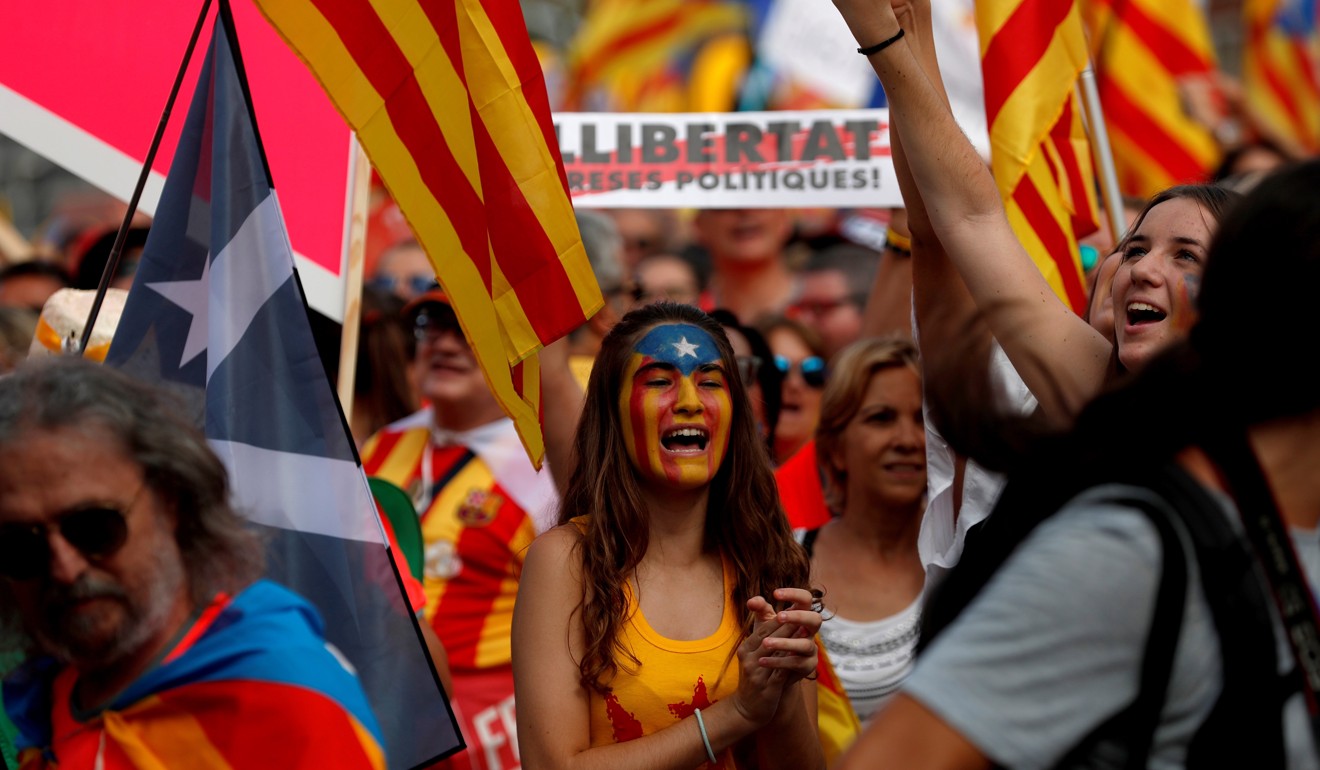
One million attend rally in Barcelona to call for Catalan independence from Spain
The huge rally came almost a year after a referendum on Catalan independence triggered a political crisis in Spain
About a million people gathered in Barcelona to renew their calls for Catalan independence and to demand the release of jailed political leaders almost a year after the unilateral referendum that triggered Spain’s worst political crisis since its return to democracy.
The annual Diada celebrations commemorate the fall of the city at the end of the Spanish war of succession in 1714, but in recent years they have been used by pro-independence groups as a show of strength.
The issue of independence remains divisive in the region, with polls suggesting Catalans are almost evenly split on whether to stay part of Spain.

Once again, the independence movement demonstrated its extraordinary capacity to mobilise its base, filling about 6.5km of Diagonal, the city’s broadest street, with hundreds of thousands of flag-waving supporters dressed in T-shirts bearing the slogan: “We’re making the Catalan republic”.
With chants of “the streets will always be ours” and “independence”, the massive crowd assembled rather than marched in their allotted sections along the street.
Then at 5.14pm – to correspond with the year that Barcelona fell – there was silence, followed by a wave of sound that roared from one end of Diagonal to the other, where it symbolically toppled a wall representing direct rule that Madrid imposed for several months after the independence declaration last October was ruled unlawful.
In a sign of the divisions in Catalan society, two of the main anti-independence parties boycotted Tuesday morning’s wreath-laying ceremony at the statue of Rafael Casanova, hero of the defence of Barcelona before it fell.

Barcelona’s mayor, Ada Colau, attended the wreath ceremony but said she would not take part in the march because it explicitly demanded independence and therefore only represented half of Catalans. “As mayor I have a duty to seek consensus,” she said.
On the eve of the Diada, Catalonia’s president, Quim Torra, said he intended to press on with plans to deliver the sovereign republic that was unilaterally declared last October by the government of his predecessor Carles Puigdemont.
The declaration prompted the Spanish government to sack Puigdemont – who fled to Belgium – take direct control of Catalonia and call a snap regional election. Several Catalan politicians, including Puigdemont, remain in self-imposed exile; others are in prison in Spain awaiting trial for their roles in the push for independence.
“This is not just about Catalan independence, it’s a struggle for basic rights and freedom of expression in Spain,” said Torra on Tuesday, citing the case of the rapper Valtònyc who was sentenced to three and a half years in prison for songs that threatened a politician, glorified terrorism and insulted the crown.
While the socialist government of Pedro Sánchez has taken a less confrontational line on the Catalan crisis than the conservative administration it replaced in June, it has said negotiations must be conducted in accordance with the constitution, which stresses the “indissoluble unity of the Spanish nation”.
Sánchez, who met Torra in July, has offered a vote on greater Catalan self-government, but has firmly ruled out a referendum on either self-determination or independence. He has also warned that any unilateral attempts to create an independent Catalonia will result in the re-application of direct rule from Madrid.

